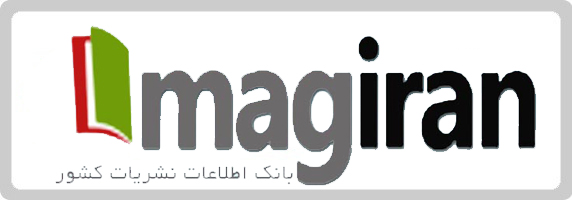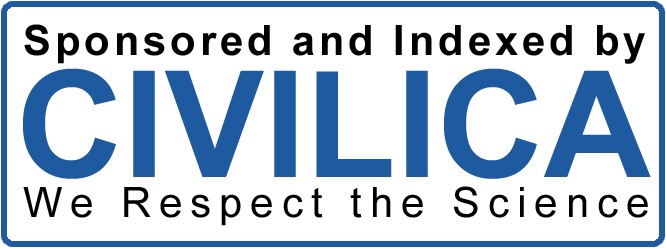A Comparative Study of the Objectives, Teaching Methods, Educational Content, and Assessment Strategies in Environmental Education within the Curricula of Selected Countries
Keywords:
Environmental Education, Curriculum Comparison, Teaching Methods, Educational Assessment, Sustainable DevelopmentAbstract
This study aims to compare the goals, teaching methods, content, and assessment strategies of environmental education in the national curricula of Iran, the United States, Canada, and Finland to identify similarities, differences, and opportunities for improvement. The study employed a qualitative, comparative-descriptive design using George Bereday’s four-stage model (description, interpretation, juxtaposition, and comparison). National curriculum documents, educational policy papers, research articles, and official reports from the four selected countries were purposefully sampled and analyzed. Data collection focused on primary and secondary education systems, with particular attention to environmental education content, objectives, pedagogical approaches, and evaluation methods. Credibility of the sources was ensured through internal and external validation, and data were analyzed using thematic comparison and content synthesis. All countries share a strong emphasis on fostering environmental responsibility, resource conservation, and cognitive understanding of environmental systems. The U.S., Canada, and Finland apply integrated goals encompassing knowledge, attitudes, and skills, while Iran lacks a clear emphasis on skill development. Teaching strategies across all countries prioritize active and experiential learning, though methods such as simulation, digital media, and lab-based inquiry are more prevalent in Western systems. Content related to ecology, sustainability, and environmental threats is uniformly present, with only minor terminological differences. Assessment practices vary: Finland favors qualitative feedback, the U.S. emphasizes standardized testing, and Canada and Iran apply performance-based and innovative evaluative methods. While there is global consensus on the core components of environmental education, national approaches vary according to cultural, structural, and technological contexts. The study highlights the need for Iran to integrate more practical skill-building, modernize assessment tools, and adopt a more interdisciplinary and student-centered approach. Comparative insights from leading systems offer valuable guidance for improving environmental education within Iran and similar contexts.
Downloads
References
1. Palmer J. Environmental Education in the 21st Century. Tehran: SAMT Publications; 2019.
2. Merritt EG, Stern MJ, Powell RB, Frensley BT. A systematic literature review to identify evidence-based principles to improve online environmental education. Environmental Education Research. 2022;28(5):674-94. doi: 10.1080/13504622.2022.2032610.
3. Obasi KK, Osah SO. Curriculum Development Planning in Environmental Education for Developing Environmental Citizenship among Primary School Pupils in Rivers State. International Journal of Instructional Technology and Educational Studies. 2022;3(2):34-41. doi: 10.21608/ihites.2021.107723.1080.
4. Parhizkar L, Fathi Vajargah K. Investigating middle school students' lived experiences of environmental education through the hidden curriculum in order to provide solutions to improve environmental literacy. Environmental Education and Sustainable Development. 2022. doi: 10.30473/ee.2022.40780.1841.
5. Saeidi A, Meiboudi H. Challenges of evaluating environmental education in Iran's green schools and strategies to improve the current situation. Sustainable Development. 2023;11(2):107-17.
6. Samadi M. Analysis of dimensions and components of environmental education in the document of fundamental transformation of education and its validation. Environmental Education and Sustainable Development. 2022;10(3):29-41.
7. Jorgenson S, Stephens JC, White B. Environmental Education in Transition: A Critical Review of Recent Research on Climate Change and Energy Education. The Journal of Environmental Education. 2019;50(3):160-71. doi: 10.1080/00958964.2019.1604478.
8. Lugg A, Quay J. Curriculum in outdoor and environmental education. Encyclopedia of Teacher Education. Singapore: Springer Nature Singapore; 2022. p. 378-83.
9. Durmuş E, Kinaci MK. Opinions of Social Studies Teacher Education Students About the Impact of Environmental Education on Ecological Literacy. Review of International Geographical Education Online. 2021. doi: 10.33403/rigeo.825516.
10. Chen CWK, Chen C, Shieh C-J. A Study on Correlations Between Computer-Aided Instructions Integrated Environmental Education and Students’ Learning Outcome and Environmental Literacy. Eurasia Journal of Mathematics Science and Technology Education. 2020;16(6):em1858. doi: 10.29333/ejmste/8229.
11. van de Wetering J, Leijten P, Spitzer J, Thomaes S. Does environmental education benefit environmental outcomes in children and adolescents? A meta-analysis. Journal of Environmental Psychology. 2022;81:101782. doi: 10.1016/j.jenvp.2022.101782.
12. Ardoin NM, Bowers AW, Gaillard E. Environmental education outcomes for conservation: A systematic review. Biological Conservation. 2020;241:108224. doi: 10.1016/j.biocon.2019.108224.
13. Hernawan AH, Darmawan D, Ali M. Environmental Education Based on Local Values: Its Integration in the Indonesian Elementary School Curriculum. Journal of Hunan University Natural Sciences. 2021;48(10).
14. Moftooh S, Zakariaei M, Entesar Foumani G, Davodi R. Developing an Environmental Education Model for High School Students in the Education System with a Grounded Theory Approach: Qualitative Study. Journal of Health Promotion Management. 2022;11(1):102-17.
15. Bezi A, Fakoori H, Bayani AA, Saemi H. Design and Validation of an Environmental Education Curriculum Model for Higher Education Based on the "Aker" Approach. Iranian Journal of Educational Sociology. 2024;7(1):79-90. doi: 10.61838/kman.ijes.7.1.8.
16. Salarzaei Z, Shokatian M, Khanfari S, Hasani A. A Review on the Necessity of Environmental Education in the Educational System. First National Conference on Applied Studies in Educational Processes2021.
17. Chen Y, Gu M. Analysis on the Policy Environment Influencing Factors of Chinese Environmental Education Development and the Reform Trend in Combination With Environmental Education History. Journal of Environmental and Public Health. 2022. doi: 10.1155/2022/3454709.
18. Pinto V, Totti MEF. Environmental Education and Perception about the Environment by High School Students and Teachers. Journal of Education in Science Environment and Health. 2020;6(3):169-76. doi: 10.21891/jeseh.705437.
19. Strapasson A, Ferreira M, Cruz-Cano D, Woods J, Marco Paulo do Nascimento Maia S, Olavo Leopoldino da Silva F. The Use of System Dynamics for Energy and Environmental Education. International Journal of Educational Technology in Higher Education. 2022;19(1). doi: 10.1186/s41239-021-00309-3.
20. Ojeda A. Environmental Education and Ecotourists: Experience From the Yucatan Coast, Mexico. Research in Ecology. 2022;4(3):1-9. doi: 10.30564/re.v4i3.4630.
21. Darmawan MD, Dagamac NH. Situation of environmental education in senior highschool programs in Indonesia: Perspectives from the teachers of Palembang. Interdisciplinary Journal of Environmental and Science Education. 2020;17(3):e2241. doi: 10.21601/ijese/9605.
22. Cook G. Environmental Education in Ecotourism Destinations: Visitor Experience on Tiritiri Matangi Island, New Zealand. 2024. doi: 10.24135/7es.33.
23. Shir-Mohammadi Y, Yazdan Panah E, Takloo F, Yaghubi Pourfard A. The Effect of Tourists' Experiences on Environmental Education through the Resonance of Ecotourism Destination Branding. Environmental Education and Sustainable Development. 2024;16(39):45-62.
24. Huang C-C, Li S-P, Chan Y-K, Hsieh M-Y, Lai J-C. Empirical Research on the Sustainable Development of Ecotourism With Environmental Education Concepts. Sustainability. 2023;15(13):10307. doi: 10.3390/su151310307.
25. Jones V. Environmental Education and the new curriculum for Wales: an evaluation of how a family of schools in a rural area used a Theory of Change approach. Environmental Education Research. 2023;29(3):392-409. doi: 10.1080/13504622.2022.2137470.
26. Hume T, Barry J. Environmental Education and Education for Sustainable Development. International Encyclopedia of the Social & Behavioral Sciences. 2022;2:733-9.
27. Marcela J, Salazar C, Alpizar F, Carlsson F. Can school environmental education programs make children and parents more pro-environmental? Journal of Development Economics. 2023;161:103032. doi: 10.1016/j.jdeveco.2022.103032.
28. Jaime M, Salazar C, Alpizar F, Carlsson F. Can school environmental education programs make children and parents more pro-environmental? Journal of Development Economics. 2023;161:103032. doi: 10.1016/j.jdeveco.2022.103032.
29. Mashari M, editor The Role of Environmental Education on Social Responsibility among Citizens2022.
30. Grecmanova FG, Diechova N, Dzuriaková FX. Competence formation in environmental education: advancing ecology-specific rather than general abilities. Umweltpsychologie. 2022;12(2):56-70.
Downloads
Published
Submitted
Revised
Accepted
Issue
Section
License
Copyright (c) 2025 Maryam Ashrafi (Author); Isa Barghi; Sadegh Maleki Avarsin, Behbood Yarigholi (Author)

This work is licensed under a Creative Commons Attribution-NonCommercial 4.0 International License.



